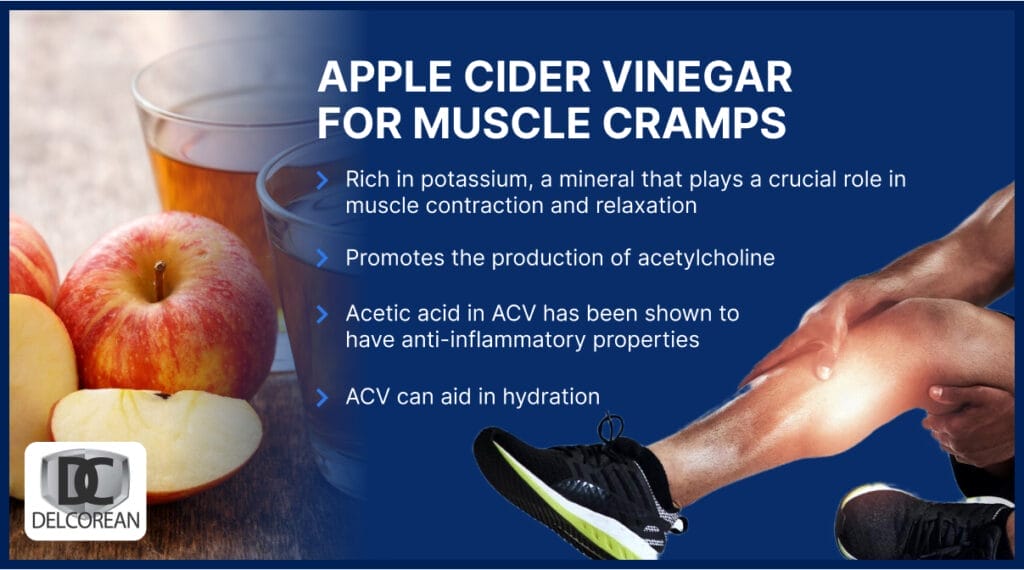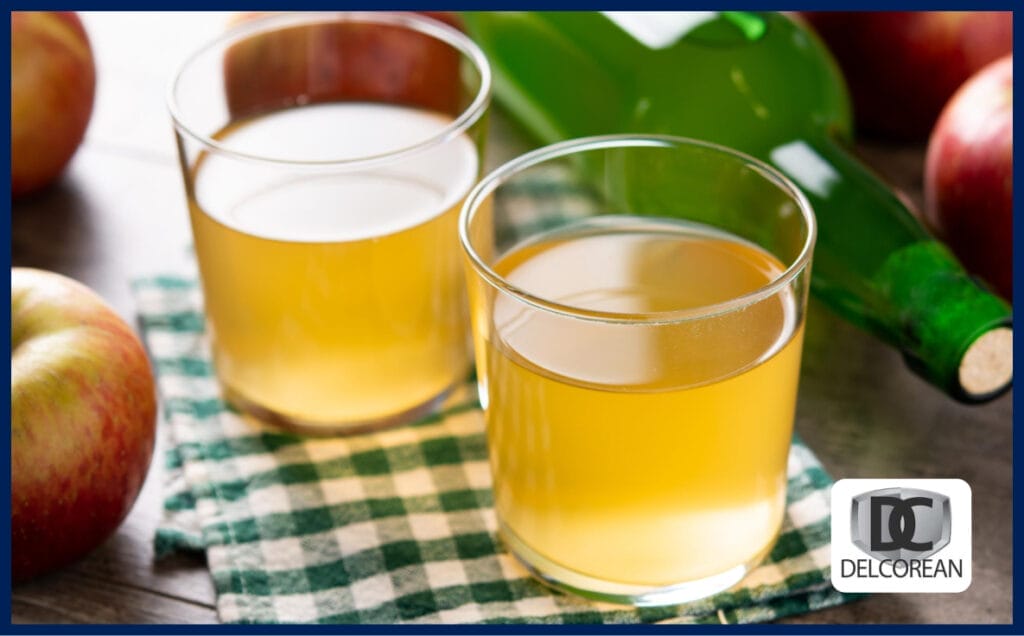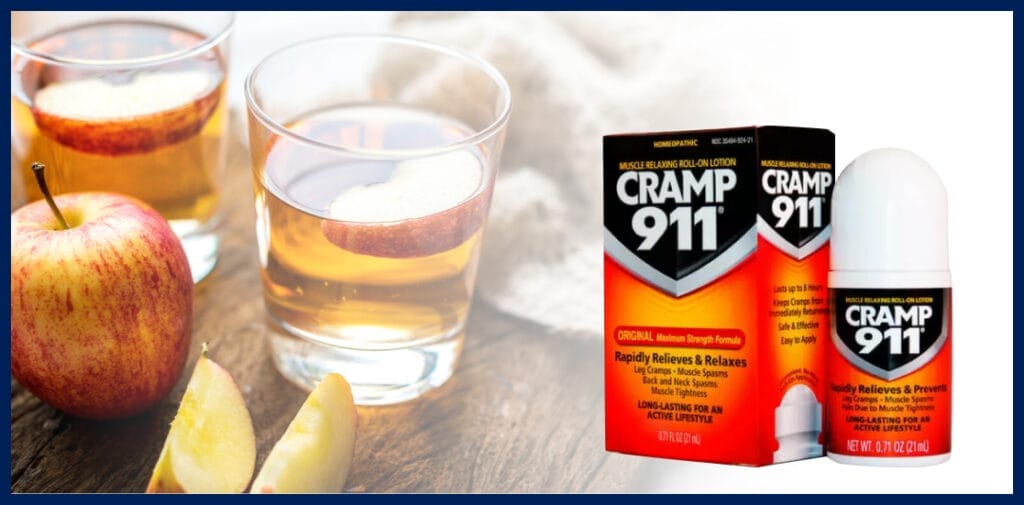Apple cider vinegar for muscle cramps has emerged as a popular remedy, offering a natural solution to alleviate these sudden, involuntary muscle contractions.
Whether you’re an athlete, have a physically demanding job, or are simply prone to muscle cramps, explore the effectiveness of apple cider vinegar, how it can be used to prevent and treat muscle cramps, and the science behind its remedial properties.

The Role of Apple Cider Vinegar in Relieving Muscle Cramps
Apple cider vinegar (ACV) has long been touted for its myriad of health benefits, from aiding weight loss to improving heart health.
Among its lesser-known yet highly effective uses is its ability to relieve muscle cramps, a common ailment that can affect anyone, regardless of age or fitness level.
How Apple Cider Vinegar Helps
Apple cider vinegar’s effectiveness in relieving muscle cramps can be attributed to several factors.
First, it’s rich in potassium, a mineral that plays a crucial role in muscle contraction and relaxation. A deficiency in potassium can lead to muscle cramps, and consuming ACV can help replenish this essential nutrient.
Apple cider vinegar promotes the production of acetylcholine, a neurotransmitter that helps muscles contract and relax. This action can help alleviate the sudden, involuntary contractions that characterize muscle cramps.
Acetic acid in ACV has been shown to have anti-inflammatory properties, which can help soothe sore muscles and reduce the discomfort associated with cramps.
Finally, ACV can aid in hydration. By encouraging fluid intake and providing electrolytes like potassium, ACV can help maintain the body’s hydration levels, preventing cramps before they start.

How to Use Apple Cider Vinegar for Muscle Cramps
Here’s how to incorporate apple cider vinegar into your routine when battling cramps.
Preventive Measures
Preventing muscle cramps before they start is key to managing this uncomfortable condition. Apple cider vinegar can play a significant role in prevention through the following methods:
- Daily Intake: Mix 1 to 2 tablespoons of ACV with a glass of water and drink it in the morning or before meals. Doing so ensures your muscles have the electrolytes needed for proper function.
- Nutrition: Combine ACV intake with a balanced diet rich in fruits, vegetables, and other sources of electrolytes like potassium and magnesium.
Immediate Relief
For those times when a muscle cramp catches you off guard, apple cider vinegar can also offer immediate relief:
- Topical Application: At the first sign of a cramp, apply a mixture of apple cider vinegar and warm water directly to the affected area. Use a ratio of 1 part ACV to 2 parts water, soaking a cloth in the mixture and applying it as a compress. The warmth helps relax the muscle, while the ACV works to reduce the cramp’s intensity.
- ACV Drink for Quick Relief: If you’re awakened by leg cramps or suffer from them after exercise, quickly drink a mixture of 2 tablespoons of apple cider vinegar, a teaspoon of honey, and a glass of warm water.
- Massage: After applying ACV, gently massage the cramped muscle. Combining the massage with the topical application of ACV can enhance its effectiveness.
Note:
As with any home remedy, it’s important to listen to your body and consult with a healthcare professional if you have any underlying health conditions or if muscle cramps persist.
Precautions and Side Effects
While apple cider vinegar is generally safe for most people, there are some precautions and potential side effects to be aware of:
Acidity
ACV is highly acidic, which can erode tooth enamel if consumed undiluted. Always dilute ACV with water before drinking.
Digestive Issues
For some individuals, consuming ACV can lead to digestive discomfort, including heartburn or indigestion. Start with a small dose to see how your body reacts.
Interactions with Medications
ACV can interact with certain medications, such as diuretics and insulin. If you’re taking any medication, consult with your healthcare provider before incorporating ACV into your routine.
Skin Sensitivity
Always dilute ACV with water to prevent skin irritation when applying it topically. Conduct a patch test on a small skin area to ensure you don’t have an adverse reaction.

Say Goodbye to Muscle Cramps with Delcorean and Apple Cider Vinegar
With its potential to alleviate muscle cramps through preventive measures and immediate relief, ACV offers a simple, cost-effective solution that can be easily incorporated into your daily routine.
Remember, while ACV can be a powerful tool in your wellness arsenal, it’s most effective when used as part of a balanced and using other methods, like applying topical creams for muscle cramps.
Give it a try and discover how ACV can contribute to a healthier, more vibrant life.


